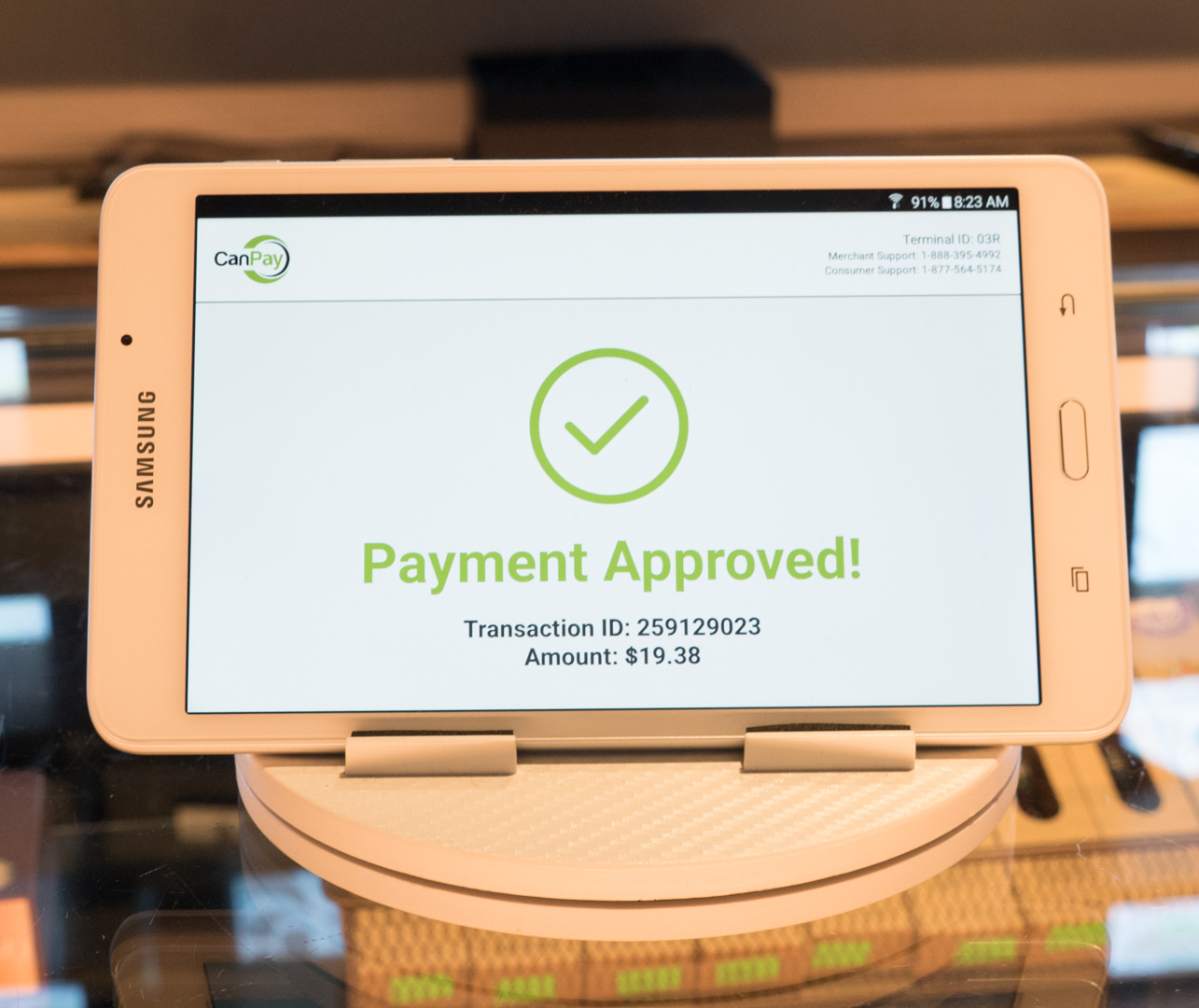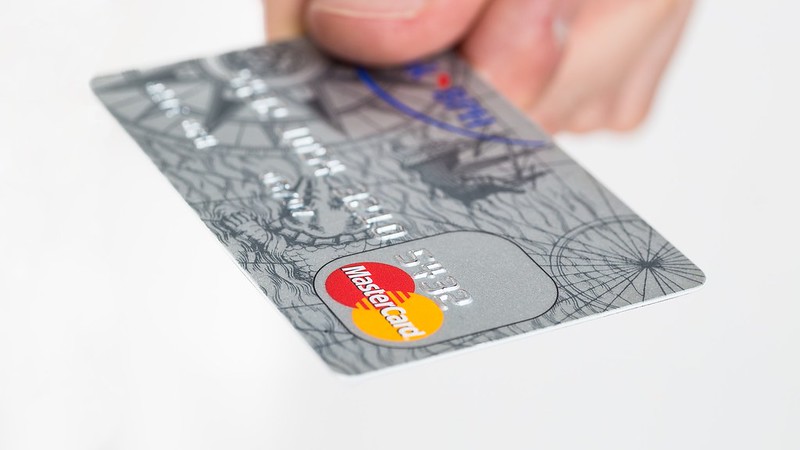Disclaimer: Marguerite Arnold has just raised the first funds for her blockchain-based company, MedPayRx in Germany (and via traditional investment funding, not an ICO). She will also be speaking about the impact of blockchain on the cannabis industry in Berlin in April at the International Cannabis Business Conference.
To read the first part of this series, click here. The Paragon class action lawsuit is likely to shake up two industries – the cannabis world, which has been following this situation at least in the industry press since the company began to raise money – and the ICO space in general. Why? Just the combination of the two topics is a guaranteed conversation starter. In addition, given the focus on whether tokens are securities or not (or whether so-called “utility tokens” are as well, depending on how they are used and sold) far beyond cannabis, this case may well begin to set precedent on the entire subject. Even more worrying for Paragon in particular right now, beyond the federal government, coordinated efforts are underway by both law firms and consumer groups to recruit aggrieved investors as suit plaintiffs. Beyond the United States and far from the Paragon case specifically, banks in Europe have begun to set guidelines on cryptocurrency and ICOs too. It is not routinely hostile everywhere (see Switzerland if not many Asian countries). But the map is now being defined.
The dilemma that Paragon is now facing is also something that has been coming for some time both for the company and others like them – and from both the cannabis investment and crypto coin directions. Digitally astute cannapreneurs take note: Do you really want your dream business used to define precedent as a defendant in a class action? Or targeted by the new SEC cyber unit whose job is to regulate ICOs (and probably “crowd sales” too?). That regulatory glare is coming everywhere. And soon. Globally.In the world of cannabis, in particular, it is also very important to be careful.
If issuing tokens, particularly if you sell them to raise money – no matter what that money will be used for – realize what you are doing. Even if you state to the world that these are not “investment” vehicles” but “utility” tokens. If you sell them, they are by definition, even if not federally litigated and defined yet in the United States, a contract for future worth, services or other benefit. An IOU in other words. As such they are also derivative securities, which is why the regulatory agencies, barely 10 years out of the last global financial meltdown, are now starting to see parallels. So much so, in fact, that SEC Chair Jay Clayton warned in January that any attorneys who are involved in ICOs might be in breach of professional obligations. Other jurisdictions are following suit.
In the world of cannabis, in particular, it is also very important to be careful. Selling (soon to be federally if not internationally regulated) tokens or securities in general for that matter for certain services or products that can be illegal in some jurisdictions is also a space that cannapreneurs are going to find challenging. See the banking problems of the entire U.S. cannabis industry. Same issue.
This is also going to get even more complicated very soon. Particularly in a world of shifting regs and when it comes to “brand creation.” Right now, for example, a crowdfund or ICO (the terms can be used interchangeably, token issue or not) for a “global cannabis lifestyle brand” promoted and sold online is highly problematic just about everywhere. Why? You cannot transport cannabis across state lines in the U.S. Americans and Israelis also still cannot export anywhere. You also cannot sell what is considered “medical” marijuana to a European regulator if it is not GMP certified. It is, according to local definition, most certainly not “medical”. You may also not distribute cannabis online in countries like Germany. And of course, cannabis itself is still federally illegal in many places, including the United States. Issuing a token or security with the intent of engaging in such practices is ill advised at this juncture. No matter what it is labelled.
Those are also situations where investors could legitimately also sue the ICO or crowd sale holder for breach of securities laws or outright fraud.
Beyond the world of banking law, users face other quagmires, depending on your situation and how you use and issue tokens. Or you certainly will in the emerging future. If you use tokens in situations where members “vote” you may also run into other problems. Like civil liberties issues. Poll taxes (where you force people to pay before access to voting or weigh the impact of their votes on financial contributions) is illegal in many jurisdictions and even more specifically certain use cases that may not always be initially obvious. How that plays out in blockchained ecosystems is a discussion of the future, but it is coming. Along with other labour and regulatory issues surrounding the use of “smart contracts.” Which are also known as “utility tokens.” See, it gets confusing. And fast.
In the cannabis space, liabilities sprout more quickly than even the fastest growing strain.As a result, the first major issue that any cannabis business considering a token generation event (or TGE) will face, no matter whether it is state or federally legit in said jurisdiction, has nothing to do with cannabis but rather rather cryptocurrencies and ICOs – and for right now federal if not international financial law – but look for that to also change as the space develops.
For the present, in most places, token issues where monetary value is assigned or implied are considered securities or even defined outright as currency. Or they will be soon. This means that if you are issuing a new coin for any purpose that you intend to sell for any purpose, including an ICO, especially one that will supposedly be used to pay for goods or services, or even to “assetize” the token to give it a market value (the value of the asset it is assigned), you are now in the federal end of the swimming pool. And federal if not international law is not for novices or sissies much less non-lawyers when it comes to crypto coin. There are great white sharks everywhere in this often-strange digital ocean. That is even before you get to cannabis.
In the cannabis space, liabilities sprout more quickly than even the fastest growing strain.
This is also easy to illustrate – even beyond the concept of an ICO. Say you are a cannabis producer in Colorado – where much of the legal cannabis industry we know today was born. You are in business, have a license and even own your grow space and the acres of real estate that it sits on. But you also want to access additional capital (including that of the international kind) and are, as an aside, overwhelmed by the demands of your cash business. You meet an energetic young blockchain geek who says she can sign you up to her service that will create your white paper, website and even hook you up to one of the several “insta-mint” crypto coin services now available for several thousand dollars (don’t forget lawyer’s fees), plus hiring a good PR firm to manage the ICO process.
Groovy.
You issue your own coins and literally mint them for the sole purpose of assigning each coin to every dried gram of your product that you produce to test the market before potentially holding an ICO. You then “sell” this bud (at wholesale prices) to a dispensary with a wallet that will accept your coin via a smart contract that only releases the funds when the right amount and quality of product is delivered to the dispensary. As a clever marketing technique, you also agree with the recreational dispensary you are working with (who happens to be in Aspen) that you both will also now offer jointly issued coins, at a higher retail price, to any tourist with a medical card or any age-appropriate recreational user who has the ID to prove it, to “pre-buy” their cannabis on the way to après ski and have it delivered, no questions asked, at the hot tub. You advertise the service with a cannabis-friendly ski package operator and travel agent, and voila – customer base is assured. If you have any celebrity friends who are willing to promote it, even better. And why not, while you are at it, do some LinkedIn outreach.
No cash needed either. ID verification happens with coin purchase.
Easy, right? So many headaches solved with one coin to rule them all. Banking issues evaporate along with a lot of work for accountants at both ends of the conversation. And the price of the coin you issue cannot be illegally pumped and dumped because the “price” is set by the state or federal market and/or supply and demand and/or another kind of asset (like a piece of real estate designed to be a startup incubator space for which people also pay entrance fees in your tokens, to enter and use). Then you can offer these “coins” for sale, at those market prices, set by the dried bud you are growing, to anyone, anywhere, to invest in too. Right?
No ICO, even. No problem. After all, you say they aren’t securities but “utility tokens.”
Wrong.
By definition, such activity is illegal in the United States if it has anything to do with the plant for the same reasons the U.S. industry remains a mostly cash-only business. There are several U.S. start-ups trying to construct “legal” payment gateways for the industry right now in the lower 48 plus 2 (see CanPay in Hawaii) and some creative efforts in Europe. However, all of those depend on the willingness of a banking institution on the other end to allow that to happen. See Uruguay if you still remain optimistic about any American efforts right now. Not to mention the newly awoken willingness of the federal DOJ to prosecute for money laundering in a post-Cole-memo world. And that includes you too, California.
But this is an issue that is not just limited to the United States.
In other places, like Canada, Australia, Israel and the Eurozone, legitimate cannabis businesses have bank accounts. And banks are absolutely involved in both the blockchain and crypto space – see Ripple. As a simplified payment gateway, the technology is imminently useful, if still forming. But banking authorities are so concerned about ICOs that they are moving, quietly, to implement policies against them even as they are still accepting cyber currency (in limited ways and via strictly controlled channels).
Given such concerns and divided loyalties, it is unlikely that authorities in Canada will sit this one out, even though (and perhaps because), to date, the most intriguing ideas about cryptocurrency and cannabis have tended to waft from this part of the world lately given what is about to happen this summer.
Most dangerous of all to the budding crypto cannapreneur is Germany – home of legal, public health insurance covering medical cannabis. Banking regulators in Frankfurt, in particular, have taken a dim view of even just regular old crowdfunding. Add a token into the mix and the Germans are even less amused. The persistent rumor in the Fintech community in Frankfurt this March is that German banking authorities are refusing to accept any funds raised during an ICO anywhere. Verboten for any purpose. Why? Even if they know who you are, and all of your investors meet their KYC requirements, they do not know the source of the cyber currency coming from those investors. No dice. And KYC in this instance does not refer to a new brand of cannabis-flavored lubricant. It is a term that means, in the most comprehensive understanding of how it must be used, not only “know your customer” but being able to verify all points of data on a chain. Including the coin issuer, purchase conditions, currency used to purchase the same and “chain of title” downstream. If you are confused by this already, you should not be engaged in an ICO right now.Not all of these models or even the ICOs that use them are scams.
Add cannabis to this recipe, and every bank in Germany, even the one at the moment who is still more or less openly participating in ICOs, if not the rest of the European financial community, will probably walk. Even if you reach your “hard cap” (the maximum amount you hope to raise) that might be in the tens if not hundreds of millions of euros. In that case, it will probably be even harder to find a bank to accept your business. Worse, you may never raise the amount you hope for. At that point, you cannot go back to traditional venture capitalists – or anyone else – for more money. You are done. You must start over from scratch. If there was an asset of any kind involved (including a license to do business) legally, everyone who holds a coin owns a piece of it. See securities law. This is precisely why you can never raise money again against that asset or with the corporate entity that owns it. Or at least not without a lot of legal fees or begging your peeved investors for more money. Legally, at that point, they could require you to sell all assets associated with the corporate entity holding the ICO. And they probably would. For investors that is the best-case scenario. ICOs for concepts with no assets or strategic partnerships in place at the time of the “token sale,” create many lose-all scenarios for investors.
There are many pitfalls to this world – and not just from the cannabis side.Issuing a “token” that someone has to pay for that acts like cash (even if to buy goods and services in the future from other members of the ecosystem and social community that crypto coins create) that also is vulnerable to market pricing, is another quagmire. In fact, it might be, beyond any techno or financial queasiness about blockchain, the biggest reason that this industry should look, and with considerable caution, at all tokenized and ICO models that also premise their worth on the idea that such coins will inevitably increase in worth over time. There is also anti-cartel, monopoly and market discrimination to consider.
Not all of these models or even the ICOs that use them are scams. There are and will be valuable alt currencies and tokens in the future (even without a cash value assigned). All of the top start-ups in the current ICO space, in fact, are finding unique ways to create a real alternative currency with values attached that are indisputable. And not all of them will succeed.
However, that is not true of the cannabis business at this juncture. The plant, much like cryptocurrency and beyond that, blockchain itself, has not reached mainstream status yet – starting with market economics and regulation that is already international. A pot-based coin, no matter where it is issued and by whom (including a federal government), would run into multiple issues with valuation just because the price of cannabis itself right now is so volatile, not to mention unevenly priced thanks to jurisdictional restrictions and barriers. For that reason, there is no way to issue a “cannabis coin” with global relevance, much less global value.
And that, of course, is beyond the issue of subsequently selling those coins on exchanges that have been repeatedly hacked, fail to give customers access to their accounts, or are, in the case of China, banned outright (which also deemed ICOs illegal last September).
There are many pitfalls to this world – and not just from the cannabis side. Part III of this series will look at some of the biggest opportunities when cannabis integrates with the DLT (distributed ledger technology).
 While this doesn’t mean that cannabis is entirely legal, the Farm Bill has brought about just enough change to ease the concerns of some in the financial industry. Where legal uncertainties have kept financial institutions away from the cannabis industry, there some companies that have become reliable partners for CBD brands. This registered merchant account provider, works with major credit card networks, making it possible for CBD companies and their customers to process payments online and offline.
While this doesn’t mean that cannabis is entirely legal, the Farm Bill has brought about just enough change to ease the concerns of some in the financial industry. Where legal uncertainties have kept financial institutions away from the cannabis industry, there some companies that have become reliable partners for CBD brands. This registered merchant account provider, works with major credit card networks, making it possible for CBD companies and their customers to process payments online and offline.  These intricacies aren’t easy to navigate, and Roberto Sato, president and CIO of GETTRX, understands why some payment processors might not want to get involved: “Typically, processors categorize CBD merchants as high risk, particularly Card Not Present merchants,” says Sato. “This classification predominantly arises from legal and regulatory compliance concerns, the rigorous due diligence executed during onboarding and risk monitoring by ISOs, processors, and sponsor banks, as well as the interplay between federal and state laws and regulations. Aspects such as product quality, safety, and overall reputational risk further compound this assessment.”
These intricacies aren’t easy to navigate, and Roberto Sato, president and CIO of GETTRX, understands why some payment processors might not want to get involved: “Typically, processors categorize CBD merchants as high risk, particularly Card Not Present merchants,” says Sato. “This classification predominantly arises from legal and regulatory compliance concerns, the rigorous due diligence executed during onboarding and risk monitoring by ISOs, processors, and sponsor banks, as well as the interplay between federal and state laws and regulations. Aspects such as product quality, safety, and overall reputational risk further compound this assessment.”




















 Corby Iannuzzelli: Our product is completely digital. The consumer experience starts with integration at the online checkout. When it’s an e-commerce shopping cart and somebody is placing an order, they will see a button called “Pay with KindTap.” The first time they click that button they’re automatically brought to our integrated web app where they do a quick and easy application for our digital revolving line of credit product. If approved, they instantly go back to the checkout screen and their first purchase will just happen immediately, with flexible payment options over time. If the consumer decides they don’t want our KindTap credit and would rather have a pay now-product where we pull the funds from their bank account, then the consumer can do so. So, there is no physical card per se, it’s integrated like PayPal or Affirm at the point of checkout online. For the consumers who use KindTap credit, there is a mobile app where they can see their transactions, view statements, pay their bills, etc.
Corby Iannuzzelli: Our product is completely digital. The consumer experience starts with integration at the online checkout. When it’s an e-commerce shopping cart and somebody is placing an order, they will see a button called “Pay with KindTap.” The first time they click that button they’re automatically brought to our integrated web app where they do a quick and easy application for our digital revolving line of credit product. If approved, they instantly go back to the checkout screen and their first purchase will just happen immediately, with flexible payment options over time. If the consumer decides they don’t want our KindTap credit and would rather have a pay now-product where we pull the funds from their bank account, then the consumer can do so. So, there is no physical card per se, it’s integrated like PayPal or Affirm at the point of checkout online. For the consumers who use KindTap credit, there is a mobile app where they can see their transactions, view statements, pay their bills, etc.








